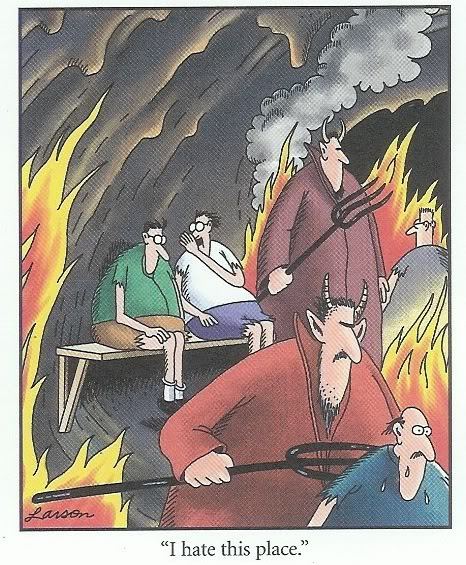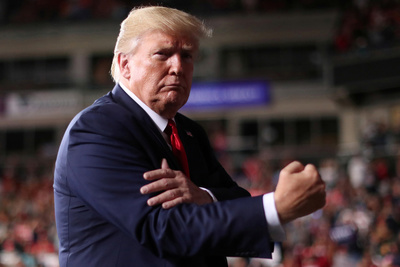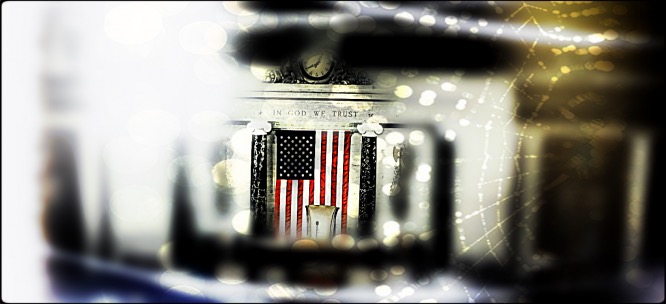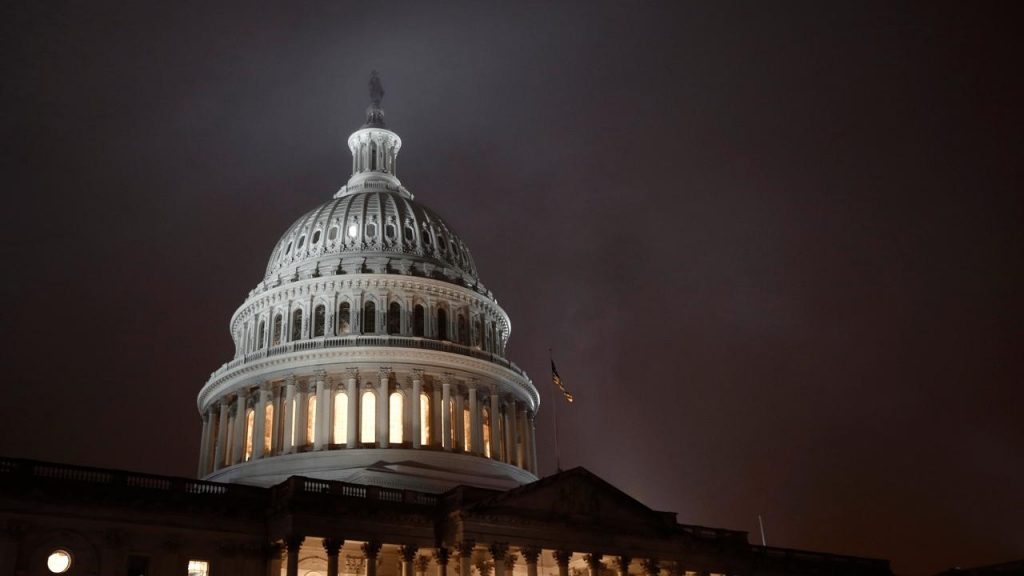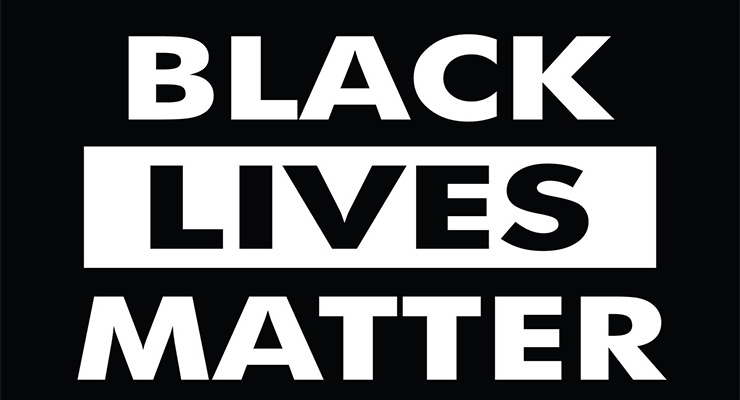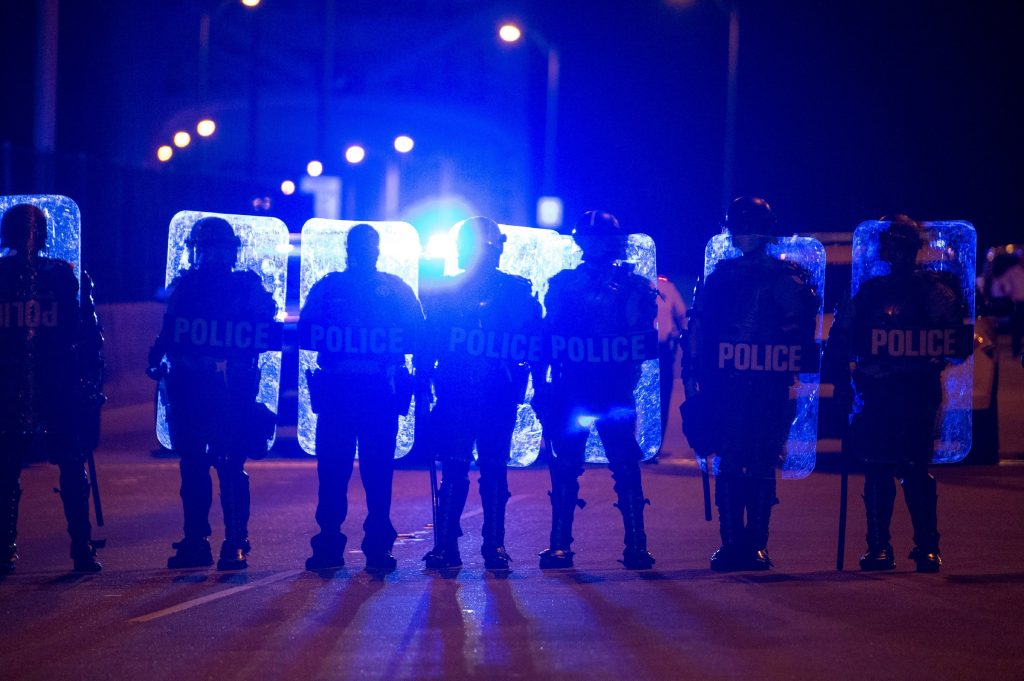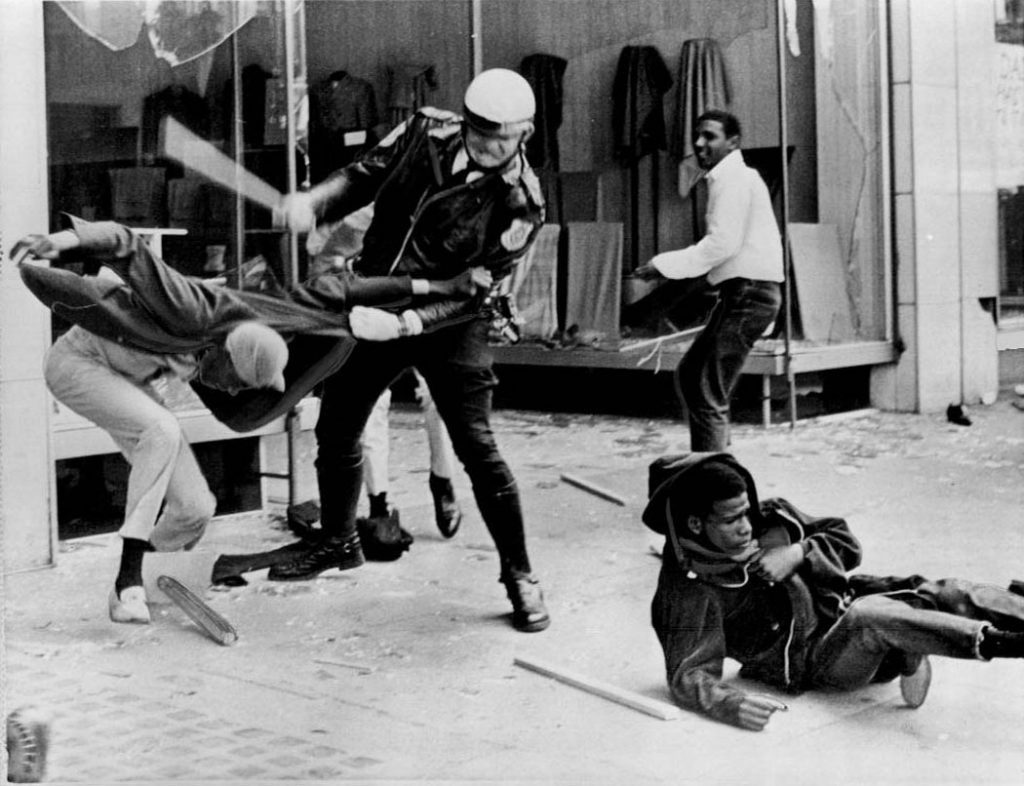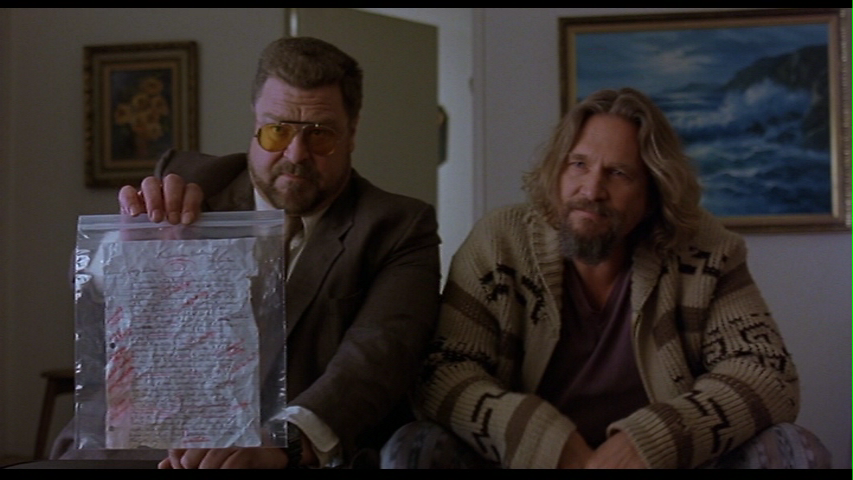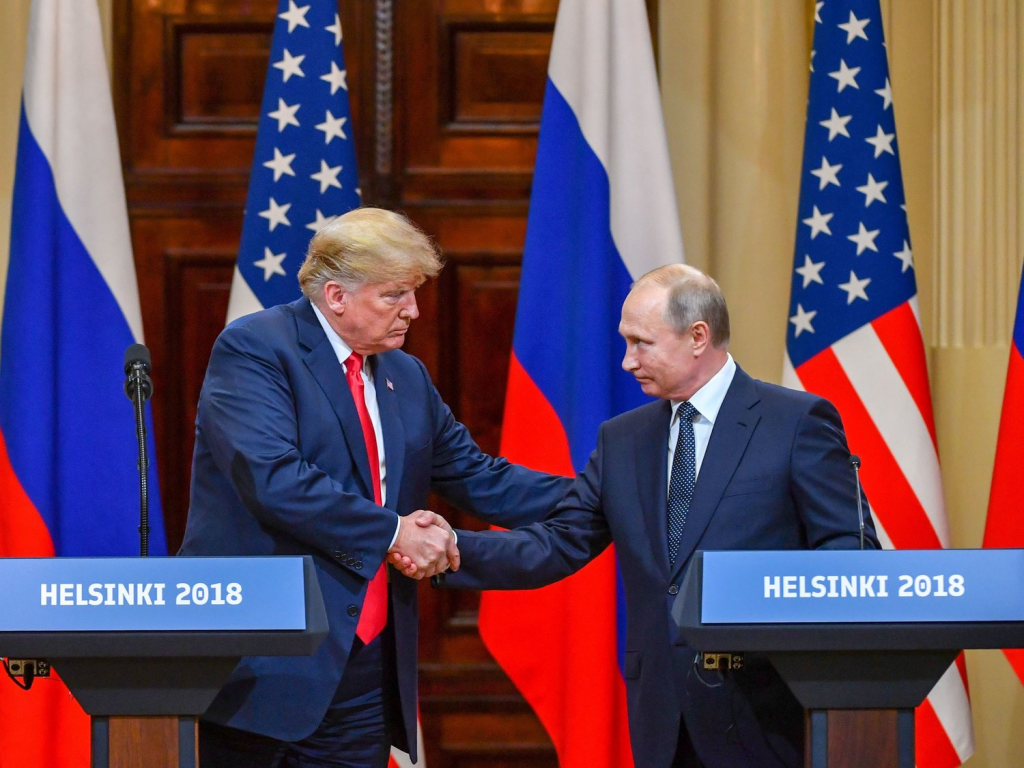
Yuri Kadobnov/AFP/Getty Images
As I began research for this article, I couldn’t help but take a closer look at the last few scandals that rocked our nation. Watergate, Iran Contra and White Water immediately sprang to mind. Each of those inquiries employed a special investigation team that sought the truth. As my research continued, my mind drifted to philosophical thoughts about human nature. Human beings are fallible creatures, we are not perfect. As such, any societal and political structure that we create will also be imperfect. Such imperfections seem clear with one look at the corruption in our political system. Some would suggest that an imperfect system was inevitable. However, as the most powerful nation on the planet, the United States has a responsibility to ensure that our political system is above par. Unfortunately, due to human nature our political history is perforated with cries of betrayal. The current Russian probe isn’t the first time these cries have sang out into the skies of our nation. Unfortunately, it is unlikely to be the last. Similarly, this isn’t the first time that an American President has been under investigation. It is not even the first time that a President has been called treasonous. Our very first President, George Washington, received a very negative reaction from Congress when he approved the Jay Treaty. Cries of treason certainly rang out of the mouths of the Jeffersonian Congress that day. The difference between former investigations and the current Russian probe is distinctive. Although there are aspects of each that are similar, the current probe seeks to uncover a threat to the American electoral system. An attack on democracy itself. Let’s look at a few of the most recent scandals.
The Watergate scandal is synonymous with intrigue, bribery and obstruction of justice. On Saturday, June 17th five men broke into the DNC headquarters at the Watergate complex. Although President Richard Nixon did not order the break in, in an effort to distance himself and his party from the scandal he helped to cover it up afterwards. Special prosecutor Archibald Cox Jr. and his team discovered a connection between the money found on the burglars and a fund used by the Committee for the reelection of the President. Nixon’s fate was sealed with tapes recorded in the white house proving that he took part in the coverup. It is interesting to note that two prominent journalists from the Washington Post, Bob Woodward and Carl Bernstein, wrote some of the most prolific articles about the scandal as it unfolded.
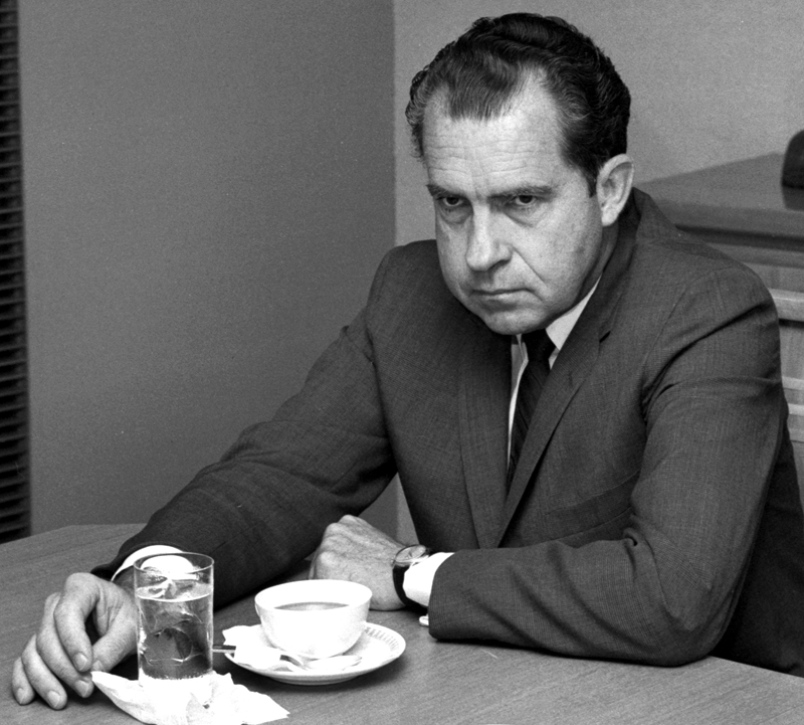
During the second administration of President Ronald Reagan America found out about the Iran–Contra scandal. With the hopes of supporting the contras (anti-Sandinista rebel fighters) and securing the release of seven American hostages officials facilitated selling arms to Iran despite an arms embargo. Although the President supported the Contra cause, the Boland Amendment made it clear that any further funding of the Contras was not permitted by congress. President Reagan ordered the National Security Council (NSC) to “keep the Contras together ‘body and soul.” He was also aware of a potential hostage transfer and the sale of missiles (Hawk and TOW) to moderates within the country. However, the proof gained in the investigating was insufficient. Basically, nobody could prove what the President knew or when he knew it. It is interesting to note that this scandal shows a failure of the checks and balances in place in our political system.
The Boland Amendments, five in total (from December 21, 1982 to October 17, 1986), prohibited any assistance from the United States government to the Contras in Nicaragua. The Reagan administration maintains that the Constitution allows the executive branch to conduct foreign policy and therefore any Presidential prerogative to overthrow the Nicaraguan government should not be blocked by such an amendment. Congress felt differently. As congress has control of the budget, they believed that they had every right to choose not to fund an attempt to overthrow a government. Checks and balances are in place to ensure that no one part of our government has more control than another. To prevent a monarchical situation that our Founding Fathers rebelled against from occurring again. This balance was wholly ineffective during the scandal when members of the Reagan administration ignored the amendments. Interestingly, just a month before the scandal broke, military aide to the contras went forward with a congressional blessing. 1,500 missiles for $30 million dollars had already been sold to Iran by the time the scandal was first revealed (1986) in Al-Shiraa, a Lebanese newspaper.
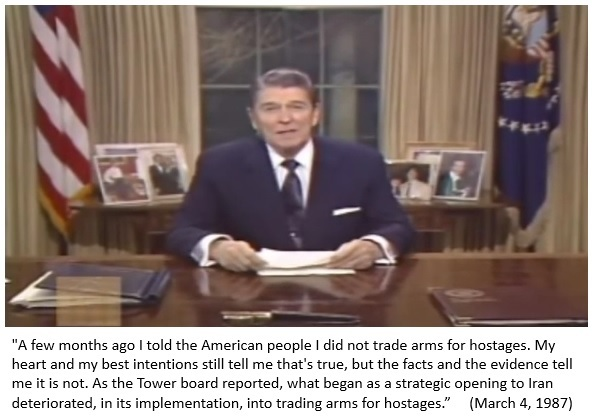
An investigation by Attorney General Edwin Meese found that of the $30 million that Iran paid for weapons, $18 million was unaccounted for. Lieutenant Colonel Oliver North (poised to be the new leader of the NRA) then admitted that the missing funds had been diverted to support the contras. What did we learn from the Iran contra scandal? The balance of power between the executive branch and the legislative branches of government can be tenuous in specific situations. We also learned something from President Reagan’s example. An excerpt from the final report is below. I have also included a link to the report. “The president cooperated with the investigation, he did not assert executive privilege, he instructed all relevant agencies to produce their documents and witnesses; and he made extracts available of his personal diaries.” A link to the final report from the Independent Counsel for Iran/CIn each of these scandals, at some point, the President had to answer questions. The investigation could not be wrapped up without answers from the commander in chief. Contra Matters information here.
From President Reagan’s example we learned that completing such an investigation happens significantly faster when cooperation occurs from the head of the executive branch.
The third political scandal that sprung to mind was Whitewater. This 1990’s scandal rocked the nation. It began as a small investigation into a failed real estate venture. President Bill Clinton and his wife (and later presidential candidate) Hillary Clinton came upon the radar after an investigator, Laura Jean Lewis, of the Resolution Trust Corporation looked into the dealings of Jim and Susan McDougal and the Whitewater Development Corporation. Lewis was already looking at the McDougal’s when The New York Times broke a story linking the Clintons to the failed endeavor. Three different inquiries concerning the Whitewater land deal failed to produce sufficient evidence linking the Clinton’s to any criminal conduct. When Kenneth Starr (lead investigator) was just about ready to close the investigation, Linda Tripp provided taped phone calls between herself and Monica Lewinsky detailing an affair with Clinton. An affair that the President denied under oath. What did we learn from the Whitewater scandal? The effort to remove President Clinton from office failed. Although the President was brought up on charges and the impeachment process began, he was ultimately acquitted by the senate.
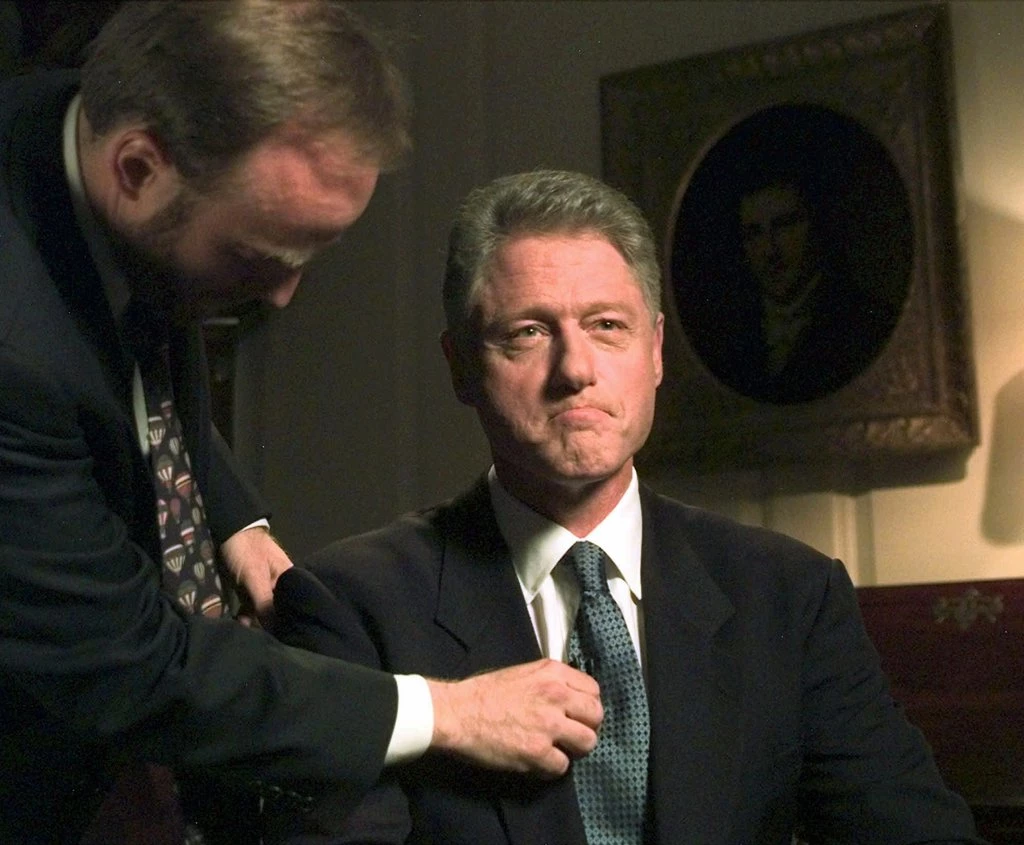
In fact, with the exception of President Nixon who stepped down, each of these Presidents were not removed from their position as Commander in Chief. The consistencies that do seem to overlap in each scandal are as follows; special counsel was often demonized, sometimes by the President in office at the time, each President was acquitted and following the money led the special prosecutor to answers. Thus far in the examples presented here, we also know that to remove a President from office things need to occur simultaneously. The clear support of American citizens, charges sufficiently grave to warrant such a removal, enough congressional support and (historically speaking) low approval ratings. Impeachment requires what I call a perfect political storm. All the pieces in place at the exact moment that such a charge is decided. I find it heart chilling that breaking the law isn’t enough of a reason to replace a Commander in Chief. Unfortunately, history suggests it simply isn’t. In fact, The New Republic’s Jeet Heer put it best when he wrote that an “agenda of reining in presidential power will give more lasting victories than mere impeachment, which is unlikely to succeed and would only address a symptom, not the cause, of the cancer that’s ravaging American politics.” In fact, in each of these aforementioned scandals, each President walked away from them reasonably unscathed and the cancer Heer speaks of seems to have spread.
Nixon chose to step down and was later acquitted by President Ford. President Reagan was exonerated; therefore, no charges were brought against him. President Clinton was also acquitted, by the Senate. Each of these Presidents walked away from major controversies without a scratch which speaks volumes about the current and past political system that the United States has in place. A system that is ensconced in backroom deals and little to no transparency. Some of this is to be expected, after all we cannot know everything that is going on due to a need to protect the Nation. Especially on a foreign interest front. However, the steps and choices made for America as a whole do inevitably affect each and every American citizen. What did we learn from the Whitewater scandal? Ultimately, we learned that there are no real consequences. Which brings me to the current scandal plaguing the news ways this very day. The Russian Probe, a Robert Mueller run investigation into the connections between President Trump and Russia.
This scandal, known commonly as the Russian probe, was reported by senior intelligence officials to multiple news outlets in December of 2016. Officials stated that they were quite confident that Vladimir Putin himself directed interference operations in the US election in 2016. In order to untangle this web of deceit, we have to go back to the Spring in 2014. That’s when a company known as The Internet Research Agency, a Kremlin linked business, came up with a strategy to disrupt the election in 2016. The goal was to spread discord. The same company has been found to create false equivalencies on other hot button issues such as anti-v-pro vaccination beliefs. Thus far in the investigation, no evidence of collusion between the Trump Campaign and Russia has been made public. Such evidence may or may not exist, until it is either publicly presented or a statement made that no such link exists we are left to wonder. I cannot help but believe that Americans being left in such a position mired in confusion and distrust is part of the intention of the Kremlin in the first place.
There are many questions that remain unanswered in this scandal. Rather than focusing on what we don’t know, let’s take a closer look at what we do know so far. In January of 2017 the Director of National Intelligence released a declassified version of a report which I have linked here.
This report was prepared jointly by the Central Intelligence Agency, Federal Bureau of Investigation and National Security Agency) and stated that “Russia’s goals were to undermine public faith in the U.S. democratic process, denigrate Secretary Clinton and harm her electability and potential presidency.” According to the report, “Putin and the Russian government developed a clear preference for President-elect Trump.” The Russian Hackers penetrated the DNC, stealing data and retaining the infiltration for about a year. The report also states that, “The Russian leadership invests significant resources in both foreign and domestic propaganda and places a premium on transmitting what it views as consistent, self-reinforcing narratives regarding its desires and red lines, whether on Ukraine, Syria, or relations with the United States.”
The multi intelligence agency report also stated that the acts perpetrated by the Kremlin were “a longstanding Russian messaging strategy that blends covert intelligence operations—such as cyber activity—with overt efforts by Russian Government agencies, state funded media, third-party intermediaries, and paid social media users (trolls).” I found the most unnerving statement to be that, “Moscow will apply lessons learned from its Putin-ordered campaign aimed at the U.S. presidential election to future influence efforts worldwide, including against U.S. allies and their election processes.” This has happened before and will likely happen again. To date, a number of people and companies have been charged in special counsel Robert Mueller’s probe into the possibility of collusion. They are listed below.
Michael Flynn
briefly served as National Security Advisor to U.S. President Donald Trump.
Plead guilty of lying to the FBI about contacts he had with the Russian government during Trump’s presidential transition
Richard Gates III (longtime business associate of Paul Manafort)
Campaign and White house aide (political consultant and lobbyist)
Plead guilty to conspiracy against the United States and making false statements
Cooperating with Prosecutors. Additional charges were filed but withdrawn without prejudice due to plea bargain with Muller.
George Papadopoulos
Foreign policy advisory panel during 2016 presidential campaign
Plead guilty (plea bargain) to making false statements to the FBI
Cooperating with the Muller investigation
Alex Van See Zwaan
Belgian-born Dutch lawyer
Pleaded guilty of making false statements to investigators about his work with Richard Gates
30 days in jail, 20,000 fine, deported to the Netherlands
Richard Pinedo
Ran online service called Auction Essistance
pleaded guilty to identity fraud, and using the identity of other persons for “unlawful activity (selling dummy bank accounts to Russian agents)
accepted a plea agreement, agreed to cooperate with the investigation
faces up to fifteen years in federal prison and a fine of $250,000
Paul Manafort
Lobbyist, political consultant, lawyer and campaigns chairman from June 2016 to August 2016
Convicted on 5 counts of tax fraud, 2 counts of bank fraud, 1 count of failure to report foreign bank account
Michael Cohen
Presidents former lawyer, vice-president of the Trump Organization, served as co-president of Trump Entertainment and was a board member of the Eric Trump Foundation, deputy finance chairman of the Republican National Committee (2017 to 2018)
Plead guilty to 5 counts of tax evasion, 1 count of making false statements to a financial institution, 1 count of willfully causing an unlawful campaigns contribution, 1 count of making excessive campaigns contributions at the request of a candidate or campaigns
According to Cohen, he violated campaign finance laws “in coordination with and at the direction of a candidate for federal office…for the principal purpose of influencing the election”
13 Russian nationals
Conspiracy to defraud the US
Conspiracy to commit fraud and bank fraud
Aggravated identity theft
12 Russian intelligence officers
11 are charged with conspiracy to commit computer crimes, 8 counts of aggravated identity theft and conspiracy to launder money
Another is charged with separate conspiracy to commit computer crimes
3 Russian companies
Internet research agency LLC
Concord Management and Consulting LLC
Concord catering
I have also included a link so that you are able to read the indictment.
Part two of this piece will explore further into the possible connections between President Trump’s team and Russia.

